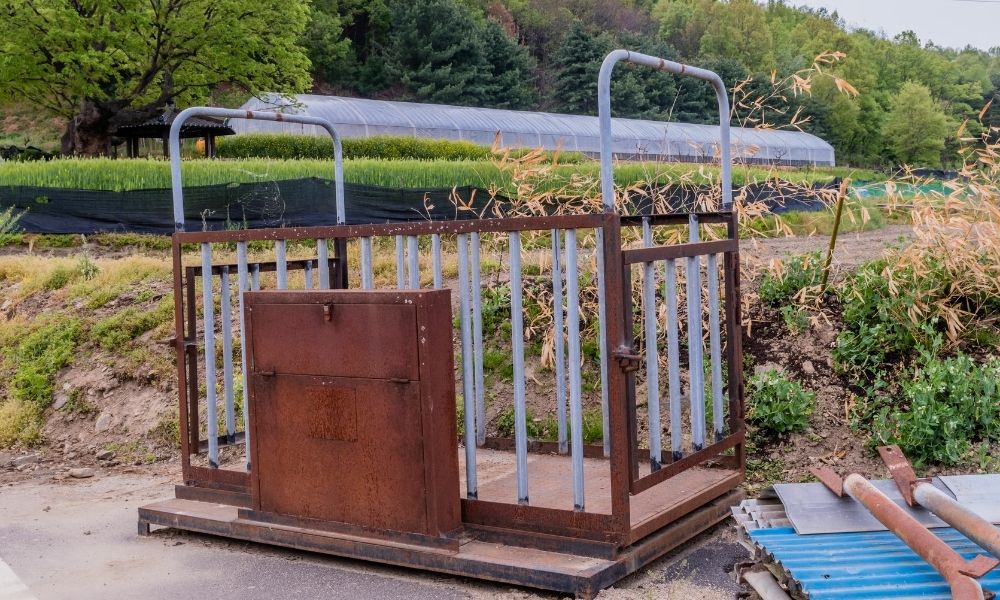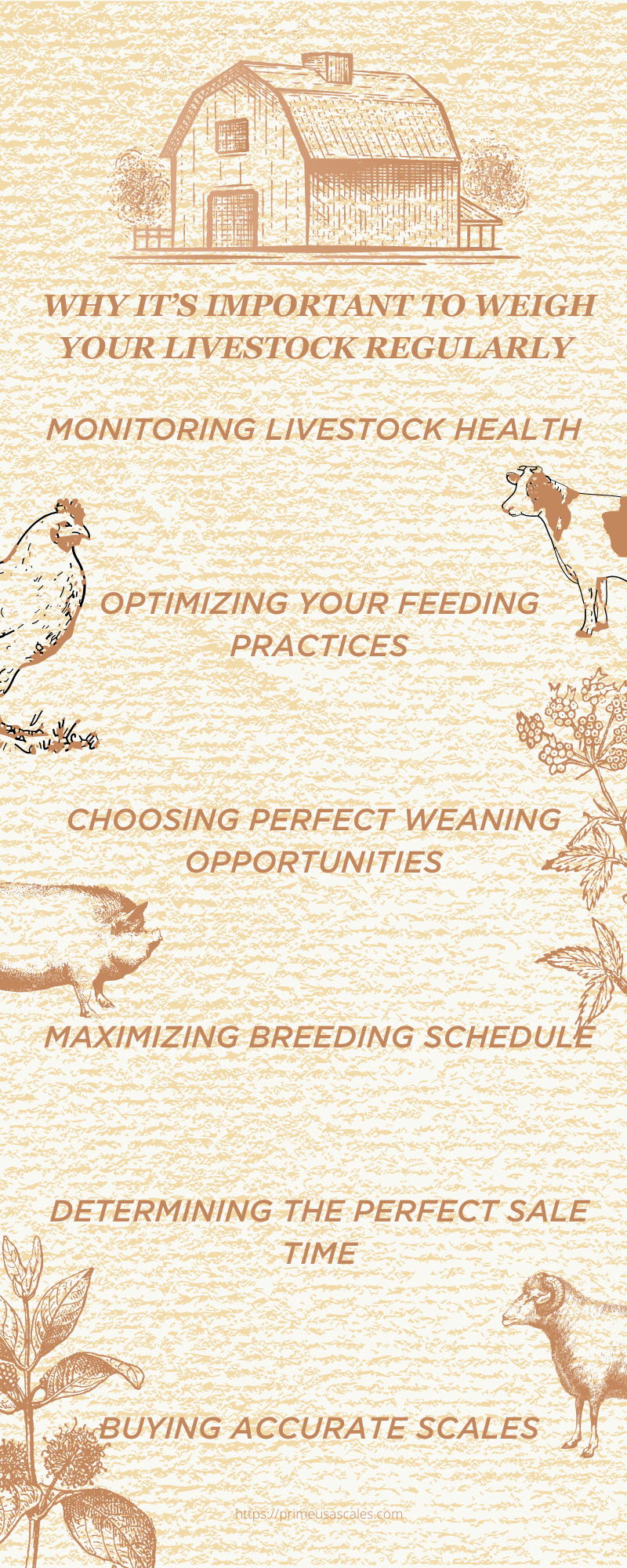
When you’re breeding, raising, and selling livestock, there are many facets to your operation. For example, weighing cattle might sound like a mundane task only relevant for generic data tracking and nothing else. However, recording livestock weight isn’t something your facility should do just because it’s part of the process.
As you’ll learn below, understanding the value of calculating cattle weight means you can improve various vital parts of your operation. To determine whether your process is ideal, use the information below to learn why it’s important to weigh your livestock regularly.
Monitoring Livestock Health
One of the most essential roles cattle scales play in the workplace is tracking animal health. Cattle scales are crucial tools for measuring livestock because such calculations can reveal details about an animal’s habits. For example, consistent calculations will help you catch significant weight deviations among your herd. Major weight loss can indicate that one or multiple animals are suffering from a disease.
Of course, if you don’t keep track of livestock weight, catching such issues is more challenging. Plus, not only does weighing livestock make you aware of potential diseases, but it gives you the chance to act as soon as possible, finding a suitable solution. For this reason, and the reasons below, buy cattle scales from reliable manufacturers. Then, if you have an accurate scale from a reliable manufacturer that meets your needs, you’ll be in good hands.
Optimizing Your Feeding Practices
Another piece of vital information you can gain by weighing livestock is the quality of your feeding practices. To put it simply, weighing livestock gives you a glimpse into how well you’re feeding the animals. If your cattle are too light or too heavy, there can be various reasons. One of the first reasons you should consider is improper feeding practices.
So, monitor the animal’s feed schedule and how much they’re receiving each meal. If you notice a problem, swiftly change feeding standards in your workplace. That way, you can ensure livestock meets the weight benchmarks they need, avoiding delays in your breeding or selling schedules. It’s easy for this problem to occur because a trusting employer assumes their facility is doing what it’s supposed to every day.
On the other hand, you might think your current feeding schedule or quantities are optimal, but if you’re not weighing livestock, miscalculations will fly under the radar. Suffice it to say; an accurate livestock scale is more crucial to the animal’s diet than you might realize.
Choosing Perfect Weaning Opportunities
Weaning is vital to integrate calves into your herd smoothly, so choosing the right time takes patience and research. Specifically, your research should include the animal’s weight. Much like your grown animals, calves require a proper feeding schedule. So, to solidify a good plan, time an animal’s weaning according to their weight to ensure they get the nourishment they need to flourish healthily.
Much like breeding schedules, it’s easy for novices to assume weaning doesn’t require precise planning. However, if you don’t weigh calves, you risk miscalculating weaning windows, which is an avoidable and substantial mistake. Remember, avoidable is the keyword there. Now, let’s move on to another pivotal role of your cattle’s life that their weight impacts—their breeding schedule.
Maximizing Breeding Schedule
Although it might surprise some folks, regularly calculating cattle weight allows you to make the most out of a breeding schedule. As we mention above, weight reveals quite a lot about animal livestock health. By closely monitoring the animal’s weight and, thus, their health, you can easily determine their optimal breeding schedule.
Unfortunately, livestock breeding isn’t something you can plan randomly. Luckily, keeping records of the animal’s health will help you plan breeding times perfectly. For example, if you find a breed in your facility is putting on weight at a consistent rate, that’s a good sign. Furthermore, if you can pair two healthy animals, you increase the chances of them producing healthy offspring in the future.
Likewise, identifying the healthiest animals in your facility can also help you find which ones will be the most efficient breeders, which is essential for optimizing daily operations. That said, not only will weighing your livestock identify when it’s the perfect time for breeding, but it’ll also tell you when to sell.
Determining the Perfect Sale Time
As you can see, timing is a critical factor in taking care of livestock daily. For instance, keeping a record of livestock weight over time will help you identify how quickly any given animal will grow. In doing so, you can determine the best time to put the animal up for sale. In other words, planning out an animal’s growth rate will ensure you can partner with a buyer ahead of time and meet their schedule successfully. That way, the client doesn’t have to wait until you think the cattle are ready to go; you’ll know when they’re ready.
Weight is only one detail you should monitor among cattle, but it affects many facets of your workflow. Ensuring you have the right system for breeding and raising cattle takes time, but that time will result in invaluable data you can use to attract buyers. After all, the more you can optimize your livestock’s breeding and feeding, the more value you can give to clients on a consistent basis.
Buying Accurate Scales
As you can see from the points above, to say that livestock weight should play a role in daily operations is an understatement. Thankfully, now that you know why it’s important to weigh your livestock regularly, you can find the perfect scale for the job. You’ll find a diverse selection of cattle scales for sale, so take time to make sure the load capacity, platform size, and other vital details match your criteria correctly. That said, don’t forget to treat your scale with care. That might sound obvious, but not everyone knows how attentive scale owners should be with their gear.
Proper handling and maintenance will help your livestock-weighing device deliver the performance you’re expecting. On the other hand, neglecting maintenance, calibration, and other forms of basic scale care will hinder its performance in the field. So, to ensure you’re recording accurate animal weights, always use scales responsibly.
